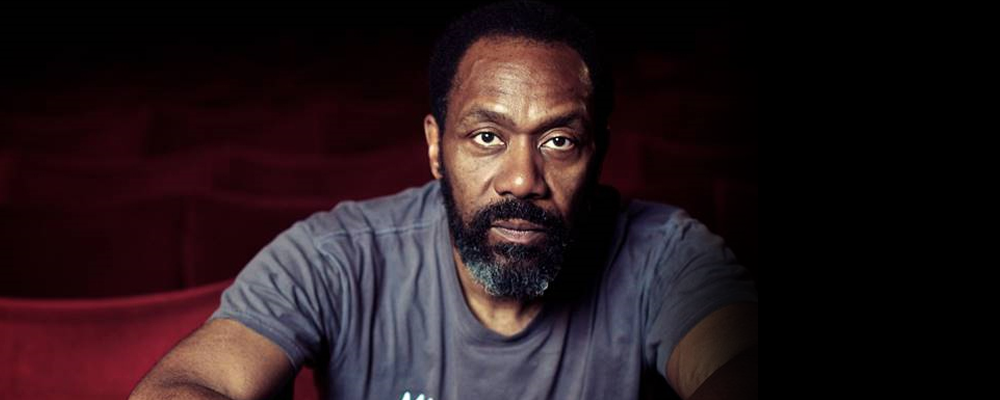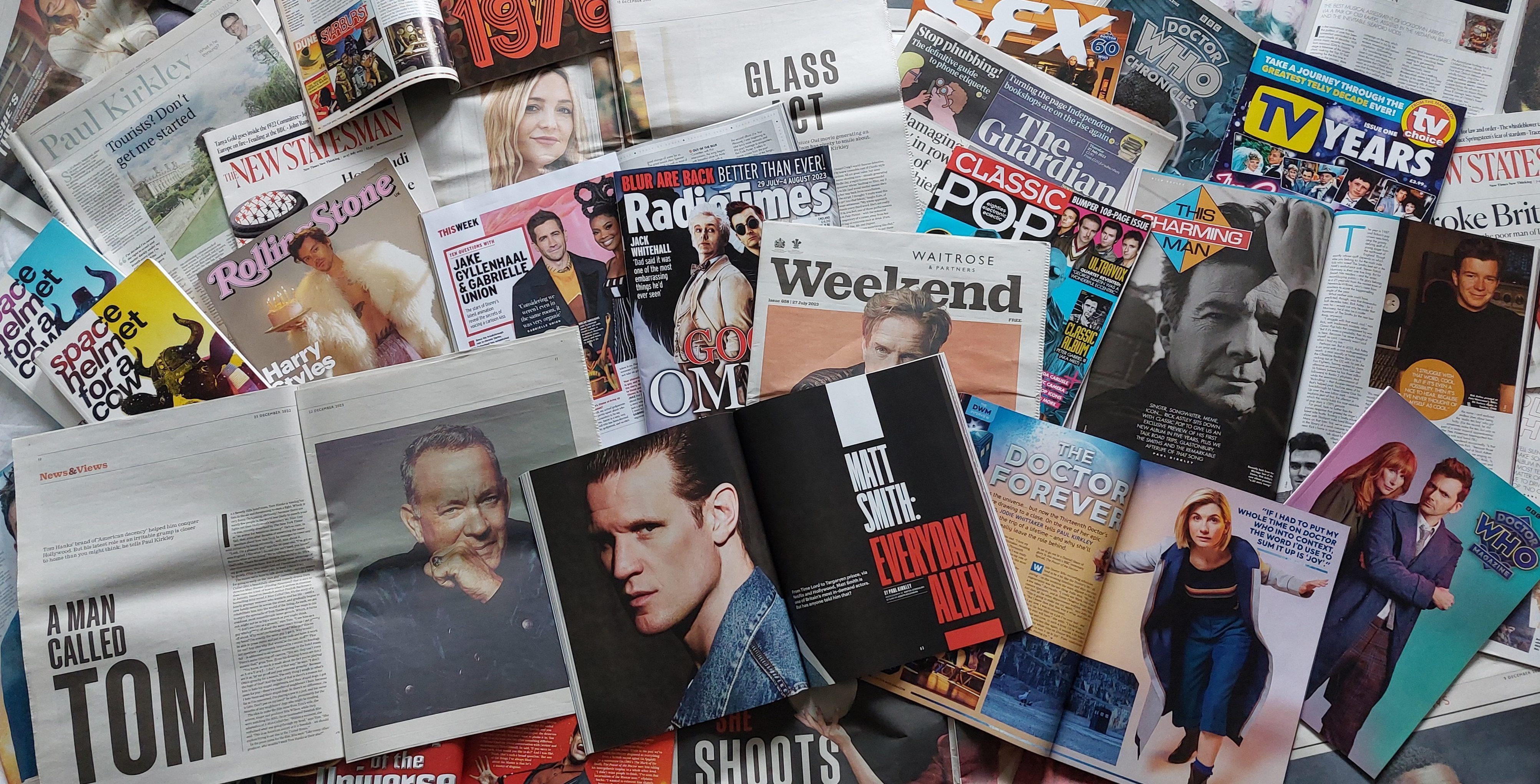
Who is Lenny Henry? To a modern audience, he’s Sir Lenworth Henry CBE, BA (Hons), MA, PhD – comedian, actor, writer, campaigner, academic, knight of the realm and national treasure. Much of which might have come as a surprise to TV viewers in the 1970s, who first encountered him as a cheeky 16-year-old, trussed up in a tuxedo and bow tie, doing Frank Spencer and David Bellamy impressions.
Little wonder, then, that Henry describes his funny and poignant new memoir as less of an autobiography, and more of a ‘biography of someone I used to know’.
‘It’s true, I’m not that guy any more,’ he tells Weekend. ‘Which is great, because he was lovely. But he was very gullible.’
On the surface, Who Am I, Again? tells the story of how a young Black Country boy, one of seven children born to Jamaican parents, came to capture the hearts of the British public on ITV talent show New Faces. But it’s also about the search for identity, in which young Lenny H follows his mother’s instruction to ‘h’intergrate’ in a manner which, he now concedes, may have been ‘over-enthusiastic’.
‘I just went out into the world,’ he explains. ‘I spoke with a Dudley accent, I had white friends – I made it my job to hang out with white guys. Because I’d lived quite an isolated experience in what was, to all intents and purposes, a Jamaican household, where people spoke with a Jamaican accent, and ate Jamaican food.
‘It’s a thing that migrants do,’ he adds. ‘We get up to speed with how people talk and act, the local idioms and catchphrases. I think that’s why I’m a mimic, an impressionist.’
Significantly, when he started out, most of those impressions were of white people, and he would often make jokes about his colour, as a way of getting the audience onside. Even he, though, recognised that something wasn’t right when he was forced to spend five long years working with the Black and White Minstrels, a song and dance troupe of white performers wearing blackface.
‘It was painful,’ recalls Henry. ‘But I couldn’t get out of it, because I’d signed a contract. I was stuck in it. I was very boxed in around that time. I was sort of closing myself off. I knew I just had to get through this. I was getting on with teenage life – going out with girls and listening to music and reading comics – but there was this nub of irritation, which was being in the Minstrel show, because I knew it went against everything. It was racist, it was an anomaly. Every time I did that show, I was sort of depressed.’
Looking back, he wishes he’d made more of a stand against racism, wherever he encountered it. ‘One of my regrets about being told to fit in at any cost, was this thing of not upsetting the apple cart,’ he says. ‘A lot of our generation didn’t want to cause any trouble, and as a result, you get a bit stomped on. I’m hideously un-confrontational – I just don’t want any conflict at all – and when I was a kid I was worse than that. I was never taught to fight, whereas my older brothers and sister who’d been born in Jamaica were really toughened up by a tough existence.’
For all the shortcomings of his new career – in the book, he quickly learns that ‘showbusiness seemed to be another word for separation, isolation’ – he knew it was better than his alternative destiny, as an apprentice welder in a Dudley factory. ‘My dad worked in a factory for 30 years,’ he says. ‘So did my mum. I respect anybody who does that hardcore work. But when I saw that the door was open, and that I could run away and join the circus, I ran. I left skid marks.’
In the afterword, Henry likens writing a memoir to ‘scouring your soul with emotional Brillo Pads’, and admits that discussing intimate family details – like the ‘coldness’ of his relationship with his Papa, Winston, and his shocking discovery, aged around 11, that his ‘Uncle Bertie’ was actually his real father – doesn’t come easily. ‘I don’t know who it was who said, “No tears in the writer, no tears in the reader…”, he tells Weekend. ‘But it was also very therapeutic and cathartic. It’s stuff I’d never said to anybody.’
His mother, Winnie, is a huge presence in the book – a whirlwind force of nature who arrived in Dudley from Jamaica in search of a better life (and promptly nearly died of pneumonia in the British winter), she rules the Henry household with a rod of iron and the heart of a lion.
‘I love my mum unreservedly,’ says Henry. ‘And I forgive her for everything she did. Because she hit me when I was a kid’ – once, she even whacked him in the face with a frying pan – ‘and was very strict. But I’m so grateful to her. The latter part of her life was extraordinary: she was a born again Christian who went out into the community as a double amputee, talking to kids and mentoring people. She was a good person, and the world is a better place for her having been in it.
‘This is not an unfamiliar story,’ he adds of his family’s fight to establish a new life in a new country. ‘It’s a working class story, a migrant story, and it’s my story. But it’s not unusual.’
What was unusual for Winnie was watching as her boy was adopted as one of Britain’s favourite sons – and even, though she wouldn’t live to see it, being knighted by The Queen. Does it add an extra weight of poignancy to such accolades, being the child of immigrants?
Work is easy, life is hard. The reason we cling to work, especially blokes, is that you can kind of see the infrastructure in front of you. There are rungs, there are hand-holds in work, whereas in life, you’re free-falling.
Lenny Henry
‘That’s one of the reasons I accepted it,’ says Henry. ‘There are many issues with the honours system – to do with Empire, and all that stuff. But in my head I just imagined my mum sitting in the crowd, and that always brings a tear to my eye, and makes me smile. My mum came to two Royal Variety Shows, and the first one she got to sit on the same balcony as The Queen. For somebody who travelled all those miles, and worked so, so hard, it must have felt like she was in a dream.’
The knighthood was awarded ‘for services to drama and charity’. While the latter acknowledges Henry’s role as a co-founder of Comic Relief, the ‘drama’ bit reflects his gradual shift from joker to respected stage actor. It’s quite the journey, suggests Weekend – from Tiswas to Othello…
‘Tiswas was very much the trigger for the next bit of my life,’ explains Henry. ‘Tiswas was freedom. It was anarchy – a world away from the staid, conservative world of summer seasons and club tours with the Black and White Minstrels. It was more rock and roll than vaudeville, and I had to be funny, but not in the way I’d been funny on telly before. I had to find a new way of being funny.’
That meant gravitating more towards alternative comedy (something Dawn French, his wife of 25 years, also encouraged) and mining his own Afro-Caribbean culture for characters like pirate radio DJ Delbert Wilkins and libidinous soul singer Theophilus P Wildebeeste.
But it was one of his early straight roles, playing an inspirational teacher in the 90s BBC drama Hope & Glory, that proved the catalyst for perhaps Henry’s most significant reinvention yet – a return to education that resulted in a degree in English Literature from the Open University, followed in short order by an MA and a PhD. (His thesis for the latter, awarded in July 2018, was entitled Does the Coach Have to be Black? The Sports Film, Screenwriting and Diversity: A Practice-Based Enquiry.)
In the book, Henry says he wanted ‘to prove to myself that I wasn’t thick’. Why on earth might he have thought he was thick?
‘Just because… my education was confused,’ he says. ‘I read a lot and I wanted to do the work, but I didn’t really get on with school. I looked out of the window a lot. What I now know is that I need to be driven, I need to be pushed, and I need to be encouraged. I blossom with praise, but if nobody talks to me or encourages me or nurtures me, I slightly wither on the vine.
‘It was a shriek from my inner self,’ he adds of his OU degree. ‘It was saying, “Come on, Len, there’s other stuff to be doing…” Also, education was my mum’s mantra: “You must get an education, something to fall back on, and I’m not talking about a mattress.” But money is a big factor in education, as we know. And we didn’t have any, so it was a bit of a struggle.’
(It can’t have helped, either, that he had to juggle exams with a burgeoning showbiz career: ‘I did my O-Levels in Blackpool when I was with Cannon and Ball,’ he recalls.)
Though Henry’s book concludes with him on the verge of a promising new career direction, the struggles didn’t end there, and he’s talked candidly about later battles with depression, and the times when he and Dawn French were targeted by racists, who daubed NF on their door in excrement, and stuffed burning rags through their letterbox. When he sits down to write the second volume, does he envisage it being harder or easier, from an emotional Brillo Pad point of view?
‘I think the problems just become different as you get older,’ he considers. ‘You get better at doing your job, but your relationships change. You get married, you have kids… I’m divorced, so you navigate divorce. [He and French, who have a daughter, Billie, split in 2010]. You try and be amenable and amicable, you continue to raise your child. For me, there’s a second and a third act. So I think there are more books to write, if they’ll have me.’
Last year, Henry turned 60. Is he… happy?
‘I’m much happier than I was,’ he says, cautiously. ‘I’ve always been a happy camper as far as the work’s concerned. Work is easy, life is hard. The reason we cling to work, especially blokes, is that you can kind of see the infrastructure in front of you. There are rungs, there are hand-holds in work, whereas in life, you’re free-falling. It’s a 24-hour improvisation. I’m trying my best to face problems head on, I’m trying not to be a d***, I’m trying to be happy. I’m enjoying my work, I’m in a good relationship [with theatre producer Lisa Makin]. I’m getting on with life. I think that’s a good place to be.’
An edited version of this article appeared in the issue of Waitrose Weekend published 10 October 2019. (c) Waitrose Weekend
